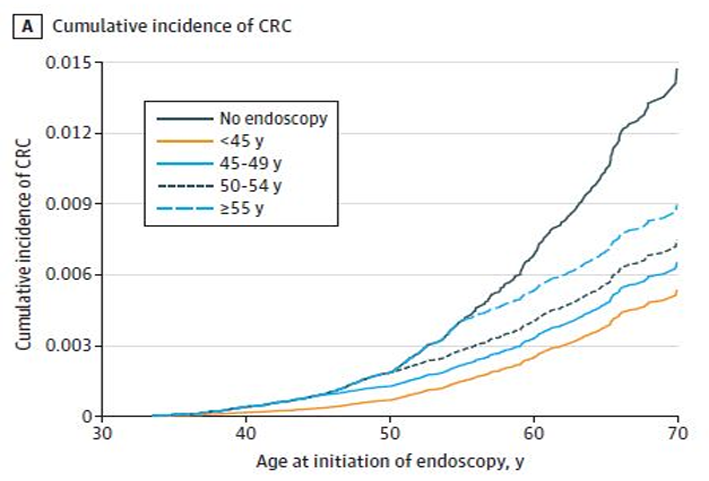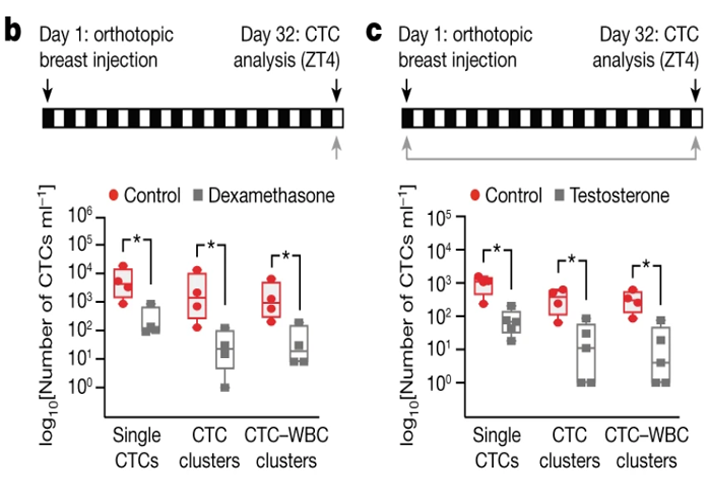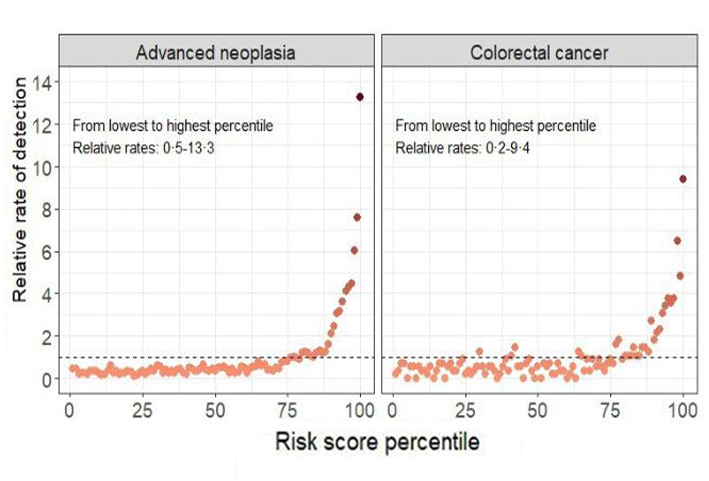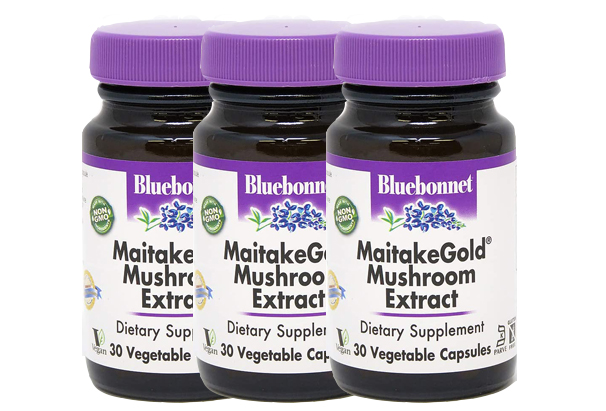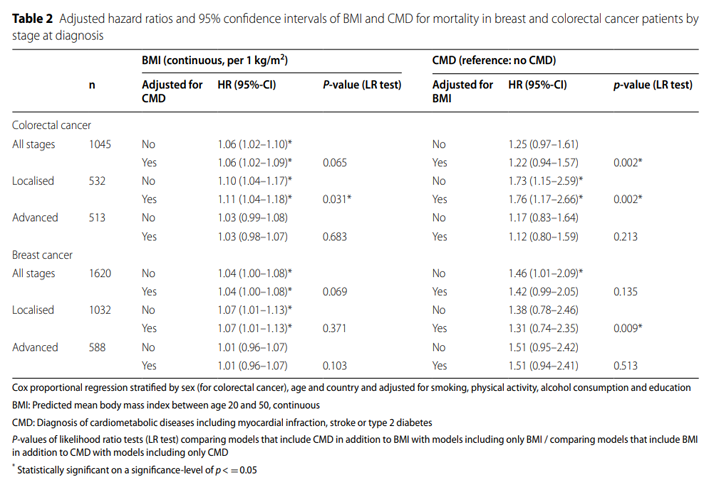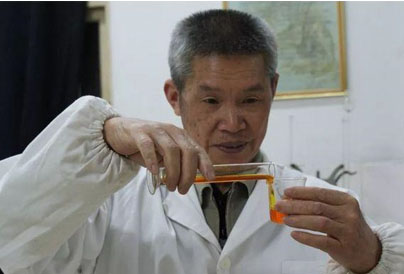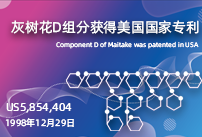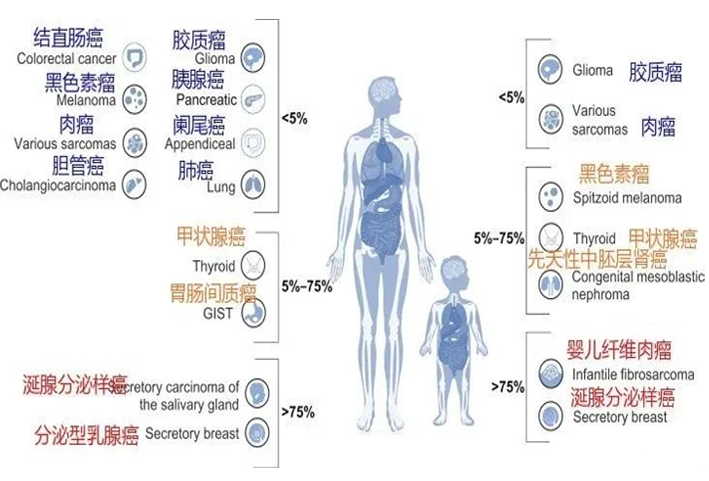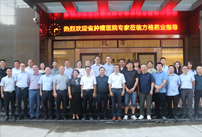For many of our cancer patients, thymosin drugs are no longer unfamiliar. There are also many cases of its application: the condition is stable after surgery, and the use of such drugs to increase resistance; during chemotherapy, the use of such drugs to improve immunity; and elderly patients with poor constitution and frequent colds regularly go to the hospital to take thymosin drugs… …especially the widely used thymopentin, which is an indispensable auxiliary drug on the road to recovery.
How can thymopentin help cancer patients recover? Let's take a look at it first.
The thymus is the central immune organ, and it begins to grow rapidly in the fetal stage until it reaches a peak in the sexual maturity stage, and then begins to become fat, atrophied, and even calcified. Therefore, the function of the thymus in the elderly is significantly reduced, which also means that the immune function gradually declines, which is also the elderly. One of the main reasons for the disparity in the incidence of malignant tumors between people and adolescents. The thymus is not only the main site for the development, differentiation and maturation of T cells, but also secretes a variety of peptide hormones. Thymosin is a kind of thymus hormone, which can improve the body's immunity by activating one or more immune active cells in the human body, so as to increase the body's ability to resist disease and infection, also known as cellular immune regulator. The thymosin drugs we are talking about can be extracted from animal thymus or artificially synthesized. The common ones are thymosin, thymosin and thymopentin.
So, what is the difference between these "three golden flowers", both of which are thymosin drugs? Why is thymopentin so favored by cancer patients?
The main active component of thymosin is thymosin α1 (Tα1) composed of 28 amino acids. Most of the thymosin used clinically is purified from the thymus of animals such as calves or pigs, so it will contain other small molecular peptides. Although it is a natural substance in animals, its active ingredients are not clear, and it contains animal allergenic macromolecular proteins. This also leads to its low efficacy and poor safety. Before use, a skin test is required to detect allergies. Even so, its adverse reactions, especially severe allergic reactions, frequently occur. Previously, the National Center for Adverse Drug Reaction Monitoring has made several notifications on this type of drug.
Both thymosin and thymopentin are artificially synthesized. Let's take a look at thymosin first. The same is thymosin α1, but it is chemically synthesized, the composition is clear, and there is no need for a skin test before use. Thymus fasin is involved in the growth, differentiation, maturation and regulation of T cells throughout the process. Ridaxian and Maipuxin, which we are more familiar with, belong to Thymus Faxin. Thymosin is an immune-enhancing drug. It is mainly used in the clinical adjuvant treatment of chronic hepatitis B. It can be combined with interferon to enhance the immune response. It can also be used to enhance the immune response of viral vaccines such as hepatitis B vaccine and influenza vaccine. prevention efficiency.
Thymopentin is clearly used as an adjuvant drug for tumors. Thymopentin is also artificially synthesized, but it is only a part of the peptide chain fragment of thymopoietin II, which consists of 5 amino acids (arginine, lysine, aspartic acid, valine, tyrosine). Although it is a fragment, it is the most important part - the immune activity center, and its function is basically the same as that of thymopoietin II (49 amino acids in total). Thymopentin is suitable for the treatment of chronic hepatitis B over 18 years old, various primary or secondary T cell deficiency diseases, certain autoimmune diseases, various diseases with low cellular immune function, and can still be used for tumor treatment. adjuvant therapy.
Thymopentin achieves immunomodulatory effects through the following pathways:
①Induce and promote T cell differentiation, proliferation and maturation;
②Regulate the proportion of T cell subsets to make CD4+/CD8+ normal (including bidirectional regulation of hypersensitivity states and immunocompromised patients);
③ Enhance the immune function of red blood cells;
④Enhance the phagocytic function of macrophages;
⑤ Improve the ability of natural killer (NK) cells;
⑥ Increase the production level and receptor expression level of interleukin-2 (IL-2);
⑦Enhance the production level and receptor expression level of γ-interferon in peripheral blood mononuclear cells;
⑧ Enhance the activity of superoxide dismutase (SOD) in serum.
Our immunity pays attention to balance. Too high or too low is not suitable. Too low can easily cause the body to be invaded by the outside world. Too high may cause allergies, overreaction of immune cells to foreign viruses, and autoimmune diseases. Thymopentin, due to its powerful bidirectional immunomodulatory effect, can maintain this balance very well. In a variety of immune dysfunction conditions, whether it is suppression or hypersensitivity, the immune function can be normalized through the two-way regulation of promotion or inhibition. Therefore, thymopentin has significant curative effect on various diseases such as malignant tumor, chronic hepatitis, severe surgical infection, diabetes, menopausal syndrome, skin disease, AIDS, aging and autoimmunity.
Another notable feature of thymopentin is its short half-life. It is quickly degraded into amino acids by protease and aminopeptidase in human plasma. The half-life is about 30s. After 10 minutes in saliva, it can retain 25% without being degraded. Although thymopentin is rapidly metabolized, it acts on target cells soon after a single injection, causing a series of cascade reactions through the intracellular second messenger (CAMP), so that the in vivo effect can be maintained for several weeks, so it can ensure that it is in the The maintenance of drug efficacy in treatment plays an important role in regulating thymus atrophy and hypofunction caused by age and other factors. When using it for the adjuvant treatment of chronic hepatitis B and tumors, 1-2 injections (1 mg) are required every day, and the continuous injection is 15-30 days as a course of treatment. For rheumatoid arthritis, the daily dose can reach 10 mg!
As an immune adjuvant drug, the use of thymopentin in domestic tumor treatment is increasing year by year. It has a clear therapeutic effect and broad application prospects, adding an important bargaining chip to the recovery of cancer patients, and it is not surprising that it is favored by many cancer patients.
References:
I Z Siemion, A Kluczyk, M Cebrat.The peptide molecular links between the central nervous and


